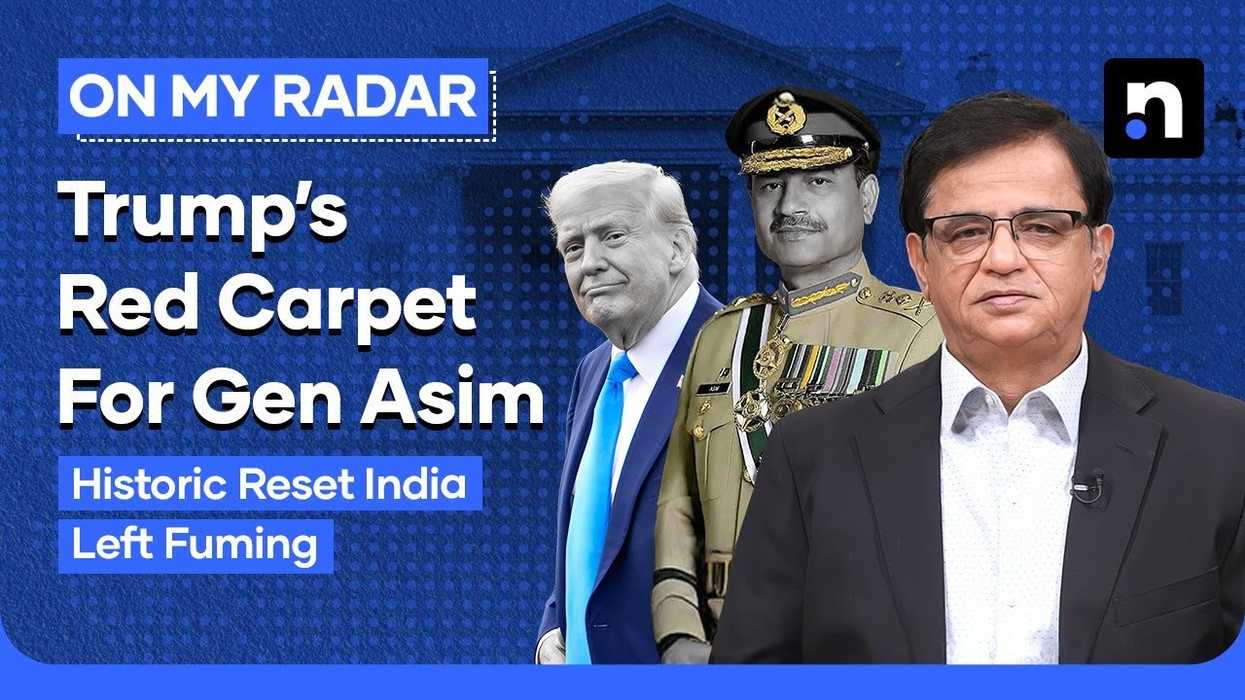Trump to host Pakistan’s army chief Asim Munir at White House in major diplomatic first
Kamran Khan highlights Field Marshal Munir’s upcoming lunch with US president as sign of strategic reset in bilateral ties
News Desk
The News Desk provides timely and factual coverage of national and international events, with an emphasis on accuracy and clarity.
Pakistan and the United States are poised to enter a new phase in their often-turbulent relationship as Chief of Army Staff Field Marshal Syed Asim Munir prepares to meet President Donald Trump at the White House later today.
The meeting, scheduled to take place over lunch in the Cabinet Room, marks an unprecedented moment in U.S.-Pakistan relations. According to Kamran Khan, it is the first time a Pakistani army chief has received a formal White House invitation from an American president.
Khan called the development “historic,” saying a “strategic reset” between Islamabad and Washington is underway. He described Munir’s five-day U.S. visit as one that could shape a new era of military, diplomatic, and economic cooperation.
“This is not just protocol,” Khan said in his vlog. “This is a defining moment that could redirect 78 years of U.S.-Pakistan foreign relations.”
The White House lunch, extended on Trump’s personal invitation, will include senior U.S. officials such as Secretary of State Marco Rubio, Defense Secretary Pete Hegseth, and key figures from the military and intelligence community.
Field Marshal Munir’s U.S. tour began in Tampa, Florida where he met top Pentagon officials and members of the U.S. National Security Council.
Khan said the symbolism of today’s White House lunch is especially significant for India. “This is a clear message,” he said, “that a strategic and economic realignment isn’t coming — it’s already happening.”
Coincidentally, Indian Prime Minister Narendra Modi had been scheduled to meet Trump during the recent G7 summit in Canada. However, Trump cut his visit short and returned to Washington. Indian officials later released a statement claiming the two leaders had a 35-minute phone call — a move widely interpreted as damage control.
Khan said India’s media reacted with visible discomfort over Munir’s high-profile U.S. visit. “It was as if someone stepped on their tail,” he said.
The upcoming meeting is expected to touch on more than military matters. Khan noted that Pakistan and the U.S. are also exploring avenues for economic cooperation — especially in mining, digital finance, and rare earth elements.
One focal point is the multibillion-dollar Reko Diq project in Balochistan, one of the world’s largest untapped gold and copper reserves. Canadian firm Barrick Gold has already begun work there, and U.S. investment is expected to follow in mineral-rich regions like Gilgit-Baltistan and Khyber Pakhtunkhwa.
Khan also highlighted the involvement of “World Liberty Financial,” a U.S.-based cryptocurrency firm linked to the Trump family. The company’s executive, Zach Witkoff, met Pakistani officials in April and signed agreements on crypto regulations and rare earth mining. This led to Pakistan including crypto in its national digital policy and naming Bilal Bin Saqib as the CEO of its crypto council.
The meeting may also feature discussions on Pakistan’s request for U.S. support in ongoing negotiations with the International Monetary Fund. In exchange, Washington could seek deeper cooperation on counterterrorism and regional security.
Kamran Khan said Munir’s presence at the White House goes far beyond optics. “The United States wants a secure foothold in South Asia, outside Beijing’s shadow,” he said. “Pakistan needs strategic and economic uplift. This visit could be the foundation of that new alignment.”
He added that China’s $64 billion investment in the China-Pakistan Economic Corridor has made Washington more determined to carve out its own space in Pakistan — especially in sectors such as lithium, copper, and digital infrastructure.
Khan emphasized that the invitation came from the White House — not just the State or Defense Departments — and during a time of heightened regional tension. “This is not Cold War diplomacy or post-9/11 strategy,” he said. “This is about the future.”
He concluded by calling today’s planned meeting “the most significant diplomatic gesture” toward Pakistan in decades.
“If this strategic and economic partnership materializes,” he said, “it could be the beginning of a brighter future for 250 million Pakistanis.”








Comments
See what people are discussing